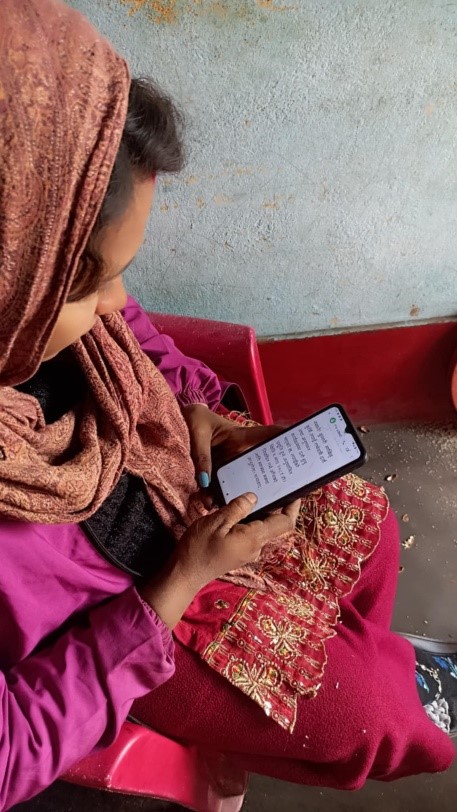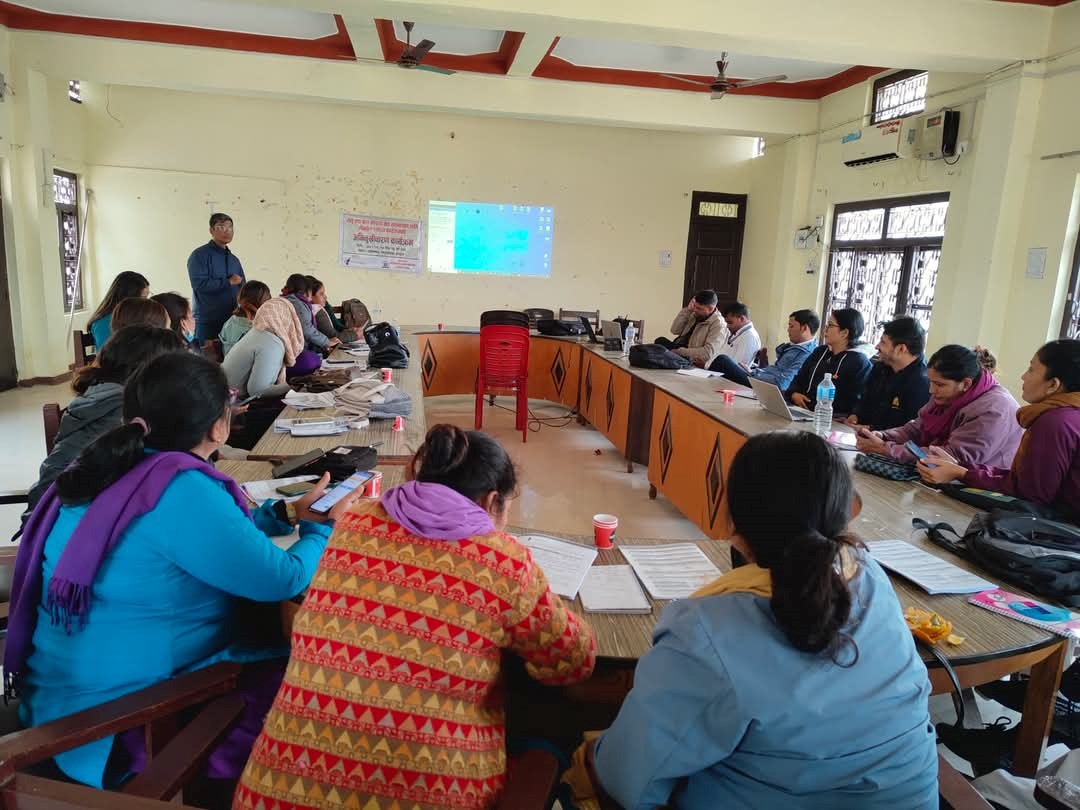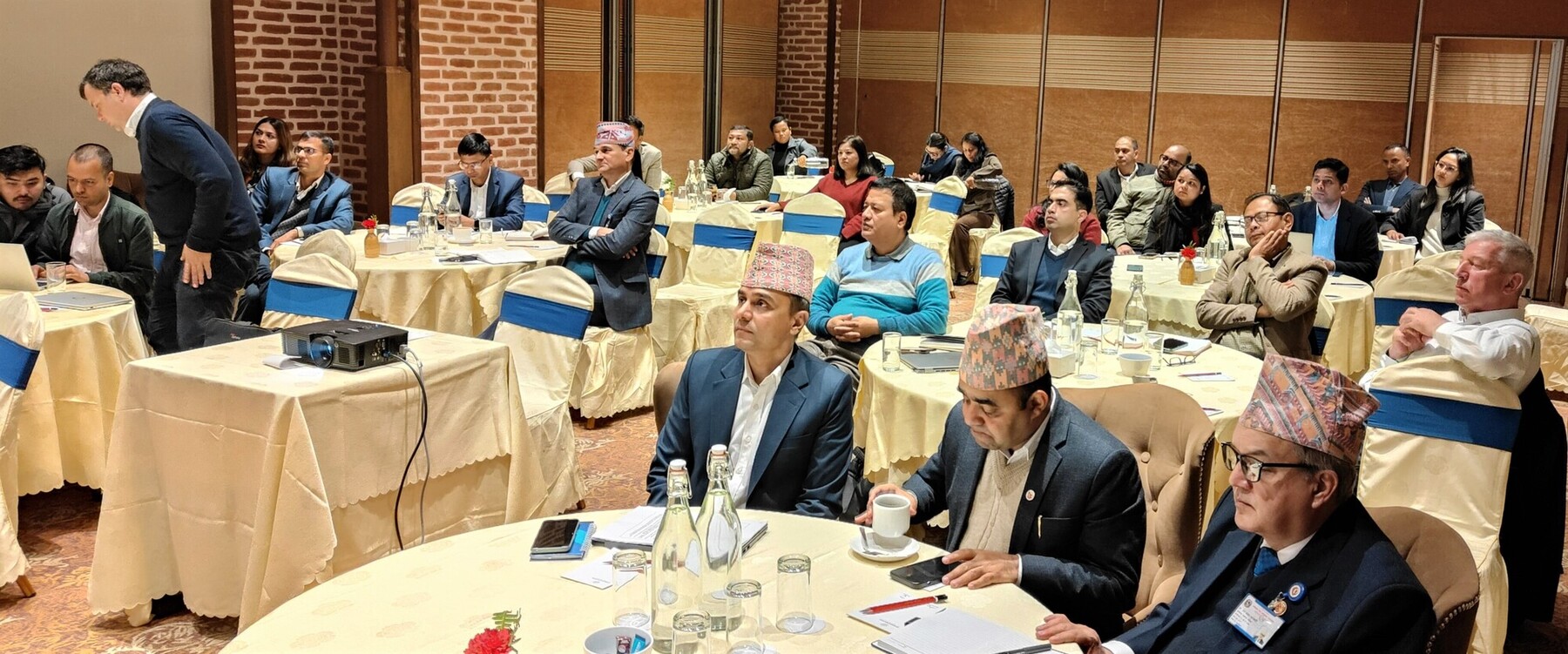Background
Kapilvastu Municipality faced a persistent challenge on Maternal and Neonatal health (MNH) indicators, despite having 50-bedded provincial hospital at the territory of the municipality. Municipality struggled with low antenatal care (ANC) check-up rates and a higher number of home deliveries compared to other local levels in the district. The absence of a waiting room at Taulihawa Hospital, combined with pregnant women’s lack of awareness about their Last Menstrual Period (LMP) and frequent visits to the hospital due to false labor pains, led to them being sent back home and advised to return only after true labor began. However, many did not return, resulting in a high number of home deliveries in the past three fiscal years—333 in 2078/79 (2021/22), 211 in 2079/80 (2022/23), and 234 in 2080/81 (2023/24). In addition to social awareness challenges, cultural and religious barriers within certain communities—such as reluctance to visit health facilities for antenatal check-ups and institutional deliveries—also contributed to the high number of home deliveries. Despite numerous efforts, such as awareness raising activities, equipping birthing centers, distributing folic acid and calcium supplements to pregnant women, and providing nutrition incentives for institutional deliveries, the MNH indicators remained stagnant. The municipality’s health section was deeply concerned about these stagnant indicators and sought innovative solutions to improve those outcomes.
During the Annual Work Plan and Budgeting (AWPB) for FY 2081/82 (2024/25), Kapilvastu Municipality planned an activity and allocated funds for a pregnancy tracking program to ensure that all pregnant women in the municipality accessed health services according to government protocols. In order to gain the necessary technical expertise, the municipality collaborated with HERD International and Medic Mobile, an organization already providing pregnancy tracking services in 35 districts throughout Nepal, including four districts in Lumbini Province, using their mHealth mobile application. Kapilvastu Municipality signed a three-year agreement with Medic Mobile, which included provisions to integrate mHealth at health facilities and municipal offices, Training of Trainers (ToT) on how to use and operate the app and delivering technical and software support free of charge.
Training: Building Capacity for mHealth Implementation
To kickstart the program, the municipality organized a two-day ToT, facilitated by Medic Mobile, for 15 staff members from ten health facilities. Participants were selected for their familiarity with mobile devices or laptops, as they would later train other health workers. The ToT taught the service providers how to register pregnant women and update pregnancy-related information into the mHealth app. The system generates automated reminders for ANC check-ups to registered women, making follow-ups easier and reducing errors in recording and reporting by service providers. By registering women and automating ANC visit reminders, among other services, this system aims to encourage and empower women to seek care at health facilities, thus reducing home deliveries and lowering maternal deaths.
Challenges: Navigating Barriers to Implementation
Overall, the participants agreed that the training, as well as the utilization of the system as a whole, was highly technical and complex. In fact, two of the 15 participants expressed strong doubts as to their own abilities to train other health workers and declined to participate further in the program. Remaining participants, though willing to train other health workers and Female Community Health Volunteers (FCHVs), also raised concerns about the program’s feasibility in Kapilvastu Municipality citing the low literacy levels of most FCHVs and their limited technical skills in using mobile phones to send messages for registering pregnant women using predefined codes.
Some weeks after the training, the Kapilvastu Municipality health section conducted monitoring visits to assess how the FCHVs were registering the pregnant women. During this visit, they found that some of FCHVs relied on family members to help them send the registration codes. Moreover, the FCHVs those were residing at the urban areas, had the registration rates of pregnant women lower than anticipated. During the training some of the health workers and FCHVs viewed the mHealth system as an additional burden that only served to increase their workload, creating resistance and uncertainty but after the implementation of the program, they have found the intervention easier than expected. Initially, the health section had planned to distribute equal amounts of mobile recharge to all FCHVs. However, after reviewing the monitoring findings and analyzing data from the mHealth platform, they decided to revise their strategy. Moving towards an equity-based model, they introduced a system where FCHVs who submitted more SMS messages received a higher mobile recharge top-up. This change aimed to incentivize performance and encourage greater engagement with the mHealth system.
Opportunities: A Path to Better Maternal Health

Despite these challenges, the municipality and the health section continue to motivate and cajole their staff to utilize pregnancy tracking effectively. They are convinced that this system offers a significant opportunity to improve MNH indicators in Kapilvastu. A comparison of ANC first visits, as per protocol, over the same three-month period (Paush to Falgun) in the last two fiscal years and the current fiscal year shows an increase following the implementation of the mHealth program. After the program’s rollout, 270 pregnant women were registered during this period, compared to 255 and 200 in the same timeframe of the previous two fiscal years, respectively. The program’s success hinges on overcoming several challenges, mainly that health workers and FCHVs find the system difficult to understand and implement, particularly the codes required for registration and tracking.












Comments (0)
No comments found.